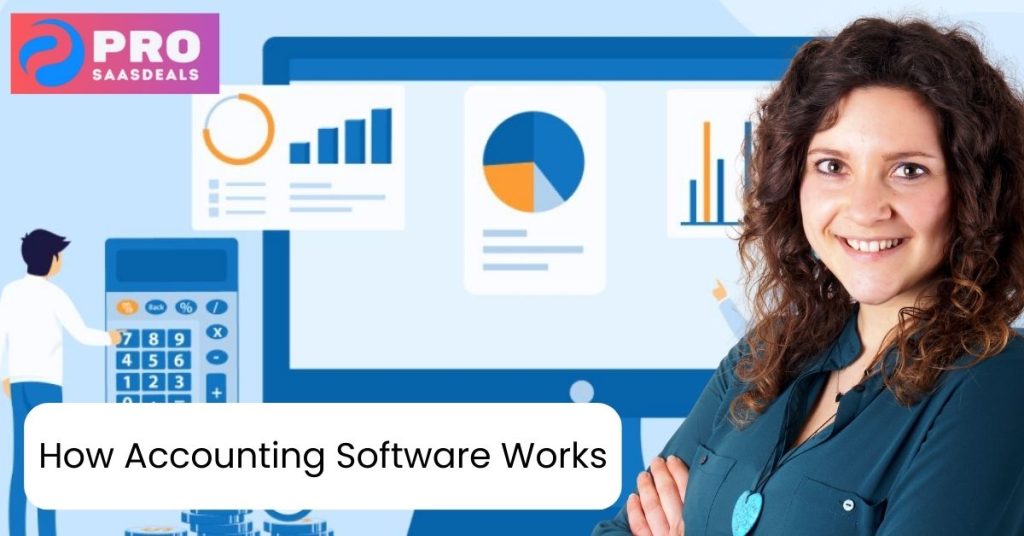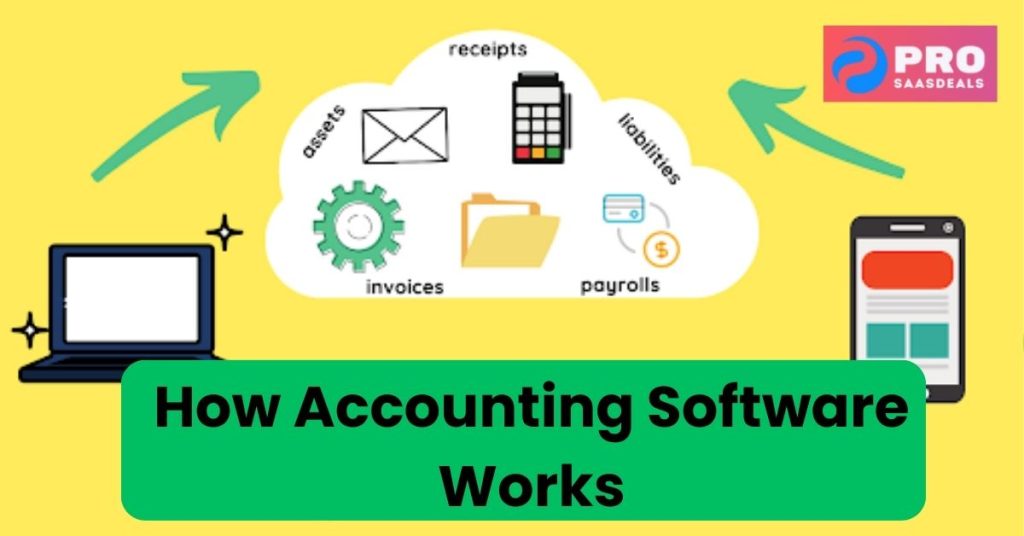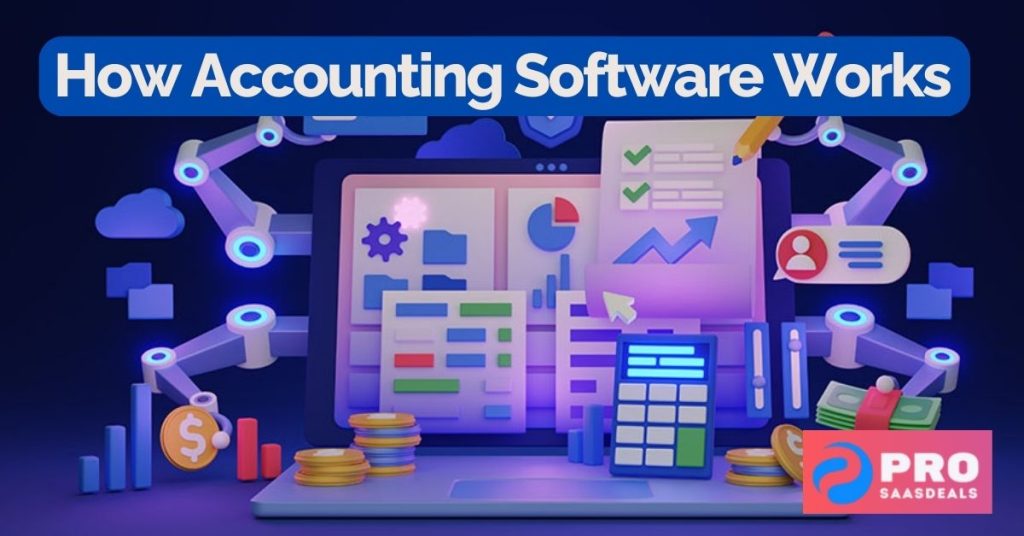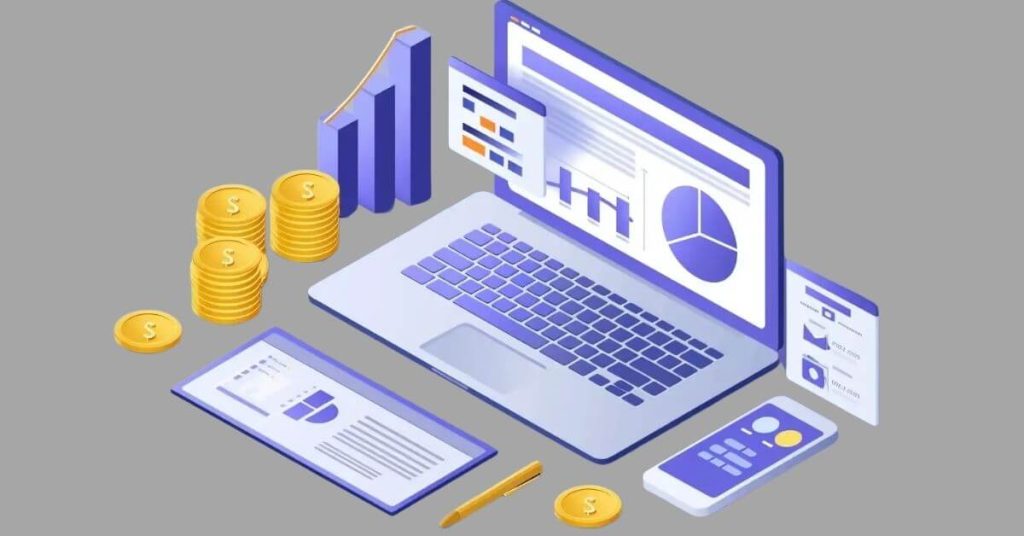Accounting software helps businesses manage their financial records. It automates tasks and ensures accuracy.
Understanding how accounting software works can seem complicated. But it’s vital for businesses of all sizes. This software streamlines financial tasks, from invoicing to payroll. It keeps track of expenses, income, and ensures compliance with tax laws. Knowing its functions can save time and prevent errors.
With the right software, financial management becomes simpler and more efficient. In this blog, we’ll explore the key features and benefits. You’ll learn how this technology can transform your business operations. Stay tuned to discover the ins and outs of accounting software.
Introduction To Accounting Software
In the digital age, businesses rely on technology for efficiency. Accounting software has become essential. It simplifies financial tasks and ensures accuracy. But how does it work? Let’s explore the basics of accounting software.
What Is Accounting Software?
Accounting software is a computer program. It helps manage financial transactions. It records, processes, and reports financial data. This software can handle various tasks. These include invoicing, payroll, and inventory management. It is designed for both small and large businesses.
Importance Of Accounting Software
Accounting software saves time. Manual bookkeeping is time-consuming. The software automates many tasks. This reduces the need for manual entry. It also decreases the chance of errors. Accuracy is crucial in financial management. The software ensures precise records.
Another benefit is real-time data access. Business owners can view financial data anytime. This helps in making informed decisions. Financial reports are generated quickly. This aids in planning and forecasting.
Moreover, accounting software enhances security. Financial data is sensitive. The software protects it with encryption and passwords. This ensures data privacy.
| Don’t Miss Out—Visit the Product Page |
In summary, accounting software is vital. It simplifies tasks, saves time, and ensures accuracy. It also provides real-time data and enhances security.

Key Features
Accounting software is essential for modern businesses. It simplifies financial tasks, making operations smoother. Let’s dive into the key features that make accounting software invaluable.
Automated Bookkeeping
Automated bookkeeping saves time. It records transactions automatically. This reduces human error. The software categorizes expenses and income. It updates your financial records in real-time. You can focus on growing your business.
Expense Tracking
Expense tracking is crucial. Accounting software tracks every penny spent. It organizes expenses by categories. This helps you see where your money goes. You can manage your budget better. It alerts you to unusual spending.
Invoicing And Billing
Invoicing and billing are simpler. The software creates and sends invoices. It tracks payments automatically. This ensures you get paid on time. You can customize invoice templates. It keeps your cash flow healthy.
Benefits For Businesses
Accounting software offers numerous benefits for businesses, enhancing efficiency and accuracy. With the right tools, companies can manage their finances more effectively. Below are some of the key benefits for businesses using accounting software.
Time-saving
One of the main advantages of accounting software is time-saving. Manual bookkeeping can be very time-consuming. Accounting software automates many tasks. This frees up valuable time for other important activities. Businesses can focus on growth rather than administrative tasks.
Accuracy And Precision
Accounting software reduces the risk of human error. Accurate data entry ensures reliable financial records. This precision helps in making better financial decisions. Errors in financial statements can lead to costly mistakes. Automation helps in maintaining accuracy and precision.
Financial Reporting
Accounting software simplifies financial reporting. It generates detailed reports with just a few clicks. Businesses can track their financial health easily. These reports are essential for strategic planning. They provide insights into revenue, expenses, and profits. Regular reporting helps in monitoring business performance.

Types Of Accounting Software
Understanding the types of accounting software is crucial for businesses. Different types cater to various needs, from small startups to large corporations. Here, we explore three main types: Cloud-Based Solutions, Desktop Software, and Mobile Applications.
| Don’t Miss Out—Visit the Product Page |
Cloud-based Solutions
Cloud-based accounting software operates online. It offers flexibility and accessibility from any internet-connected device. Users can access real-time data and updates. This type of software often includes automatic backups, reducing data loss risks. Many cloud solutions also integrate with other business tools. This helps streamline workflows and improve efficiency.
Desktop Software
Desktop accounting software is installed on a local computer. It provides robust functionalities without needing an internet connection. Many businesses prefer this for its reliability and offline capabilities. Desktop solutions often offer extensive features and customization options. They are ideal for companies with complex accounting needs. Regular updates and backups are essential to keep the data secure.
Mobile Applications
Mobile accounting applications bring convenience to your fingertips. They are perfect for on-the-go access and quick updates. Mobile apps sync with cloud or desktop versions for seamless integration. Users can manage invoices, expenses, and reports from their smartphones. These applications are user-friendly and designed for simplicity. They cater to small business owners and freelancers who need flexibility.
Integration With Other Tools
Integration with other tools is a key feature of modern accounting software. It helps businesses streamline their operations by connecting different systems. This means less manual work and fewer errors. Below, we will explore how accounting software integrates with banking, payroll, and CRM systems.
Banking Integration
Banking integration allows accounting software to connect directly with your bank accounts. Transactions are imported automatically, saving you time. You can reconcile accounts faster and ensure accuracy. This feature also provides real-time financial data, helping you make informed decisions.
Payroll Systems
Payroll integration is another crucial feature. It syncs your payroll data with your accounting software. This means your payroll expenses are updated automatically. No more manual entry. It reduces errors and ensures compliance with tax regulations. Your financial statements stay accurate and up-to-date.
Crm Software
CRM software integration helps manage customer relationships efficiently. It connects your customer data with your accounting software. You can track sales, invoices, and payments in one place. This integration improves customer service and enhances financial reporting. It provides a complete view of your business finances.

Security And Data Protection
In the digital age, securing financial data is critical. Accounting software ensures that sensitive information remains safe from unauthorized access. Let’s explore how such software maintains security and data protection.
Encryption Standards
Encryption transforms data into unreadable code. Only authorized users can decrypt it. Accounting software uses advanced encryption standards to protect data. This ensures that even if data is intercepted, it remains unreadable.
For instance, 256-bit encryption is common. This level of security is often used by banks. It makes unauthorized access extremely difficult.
User Access Controls
User access controls define who can access what. Accounting software allows admins to set permissions for each user. This ensures that only authorized users can view or edit sensitive data.
| User Role | Access Level |
|---|---|
| Admin | Full Access |
| Manager | Edit and View |
| Staff | View Only |
This table shows how access levels can vary. Limiting access reduces the risk of data breaches.
Backup And Recovery
Data loss can happen due to hardware failure or cyber-attacks. Accounting software includes backup and recovery features. These features automatically save copies of your data.
- Automatic Backups: Data is regularly backed up without user intervention.
- Cloud Storage: Backups are stored in secure cloud servers.
- Recovery Options: Easy restoration of data if needed.
Automatic backups ensure data is not lost. Cloud storage adds an extra layer of security. Recovery options make data restoration quick and efficient.
Choosing The Right Software
Choosing the right accounting software is crucial for your business. It can streamline your finances and save valuable time. But how do you choose the right one? Let’s break it down step-by-step.
Assessing Your Needs
First, list your business’s specific needs. Do you need invoicing? Do you need expense tracking? Maybe you need payroll services. Make a comprehensive list. This will help you narrow down your options.
Next, consider the size of your business. A small business has different needs than a large corporation. Make sure the software can scale with your growth. Also, think about the number of users. Some software charges per user. You don’t want hidden costs.
Budget Considerations
Budget is another critical factor. You want software that fits your budget. There are many options available. Some offer monthly subscriptions. Others might have a one-time fee. Compare these costs carefully.
Look for hidden fees. Sometimes, there are charges for extra features. Read the fine print. Be sure you know what you are paying for. Also, check if there is a free trial. This can help you test the software before committing.
User Reviews
User reviews can be very helpful. They offer real-world experiences with the software. Look for reviews on trusted websites. Pay attention to common praises and complaints. This will give you a clearer picture.
Here is a simple table to consider:
| Software | Pros | Cons |
|---|---|---|
| Software A | Easy to use, Affordable | Limited features |
| Software B | Feature-rich, Scalable | Expensive |
In summary, choosing the right accounting software involves assessing your needs, considering your budget, and reading user reviews. This approach will help you make an informed decision.
Future Trends
The world of accounting software is constantly evolving. New technologies are shaping its future. Let’s explore some of these exciting trends.
Ai And Automation
Artificial Intelligence (AI) is transforming accounting. AI automates repetitive tasks, saving time and reducing errors. It can process large amounts of data quickly. This helps accountants focus on more important work.
Machine learning is another key aspect. It allows the software to learn from data. This means better predictions and smarter decisions. For example, AI can suggest budget adjustments based on past spending.
Automation is also on the rise. Routine tasks like data entry and invoice processing are automated. This increases efficiency and accuracy. It also frees up time for accountants to focus on strategic tasks.
Blockchain Technology
Blockchain is making waves in accounting. It offers a new way to handle transactions. Blockchain creates a secure and transparent record of transactions. This ensures data integrity and reduces the risk of fraud.
Each transaction is verified by network participants. This means more trust and less chance of tampering. Blockchain can also streamline audits. Auditors can easily trace transactions back to their source.
Another benefit is faster processing times. Transactions are processed in real-time. This improves cash flow and reduces delays.
Enhanced Analytics
Enhanced analytics are becoming a key feature in accounting software. Data analysis tools help businesses make better decisions. They provide insights into financial performance and trends.
With enhanced analytics, businesses can track key metrics. This includes revenue, expenses, and profitability. They can also identify patterns and trends. This helps in forecasting and planning.
Data visualization tools are also important. They turn complex data into easy-to-understand charts and graphs. This makes it easier for stakeholders to grasp key insights.
Predictive analytics is another exciting trend. It uses historical data to predict future outcomes. This helps businesses plan and prepare for the future.
Overall, these trends are making accounting software smarter and more efficient. They help businesses stay competitive in a rapidly changing world.
Frequently Asked Questions
What Is Accounting Software?
Accounting software is a tool that helps businesses manage financial transactions. It automates processes like invoicing, payroll, and reporting. This software improves accuracy and efficiency.
How Does Accounting Software Save Time?
Accounting software automates repetitive tasks such as data entry and report generation. This saves time for businesses. It reduces manual work and errors.
Can Accounting Software Improve Accuracy?
Yes, accounting software can improve accuracy. It minimizes human errors in financial data. Automated calculations and data entry ensure precise records.
Is Accounting Software Secure?
Most accounting software is secure. It uses encryption and access controls to protect data. Regular updates help maintain security standards.
Conclusion
Understanding how accounting software works can simplify your business operations. It automates tasks, improves accuracy, and saves time. By integrating various financial functions, it offers a comprehensive view of your finances. This helps in making informed decisions quickly. Choose the right software that fits your business needs.
Start experiencing the benefits of streamlined accounting today. Investing in accounting software is a step towards efficient financial management. Embrace technology to stay ahead.

